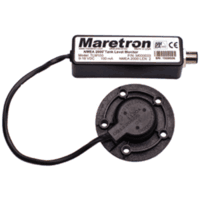|
|
Compatible Accessories Maretron Water In Fuel (Diesel) Detector for RIM100  Maretron Alternating Current AC Monitor ACM100-01  Maretron Battery Harness with Fuse For DCM100  Maretron Current Transducer with Cable For DCM100  Maretron Current Transducer with Cable for DCM100, 400A  Maretron Current Transducer with Cable for DCM100, 600A  Maretron DCR100-01 Direct Current Relay Module  Maretron Direct Current DC Monitor DCM100-01  Maretron Run Indicator Module RIM100  Maretron J2K100 Adapter Micro Female, Deutsche 12 Pin 2T MCF-2M-D12CAT  Maretron J2K100 Adapter Micro Female, Deutsche 4 Pin 2m  Maretron J2K100-01 J1939 To NMEA2000 Bridge J2K100-01  Maretron NMEA2000 Starter Kit  Maretron J2K100 Adapter Micro Female, Deutsche 12 Pin 2m MCF-2M-D12  Maretron NMEA2000 Network Bus Extender NBE100-01  Maretron IPG100 Internet Protocol Gateway  Maretron USB100-01 Gateway NMEA2000 / USB USB100-01  Maretron Solid-State Rate/Gyro Compass with 10m Cable & Connector SSC300-01-KIT  Maretron Solid-State Rate/Gyro Compass without Cables SSC300-01  Maretron DST110 Depth/Speed/Temperature Triducer  Maretron Alarm Module ALM100-01  Maretron Current Transducer with Cable, 400A for ACM100  Maretron Current Transducer with Cable For ACM100, M000630  Maretron FPM100 Fluid Pressure Monitor  Maretron TMP100 Temperature Module TMP100-01  Maretron VDR100 Vessel Data Recorder  Maretron RAA100-01 Rudder Angle Adapter RAA100-01  Maretron Switch Indicator Module SIM100  Maretron TLA100-01 Tank Level Adapter TLA100-01  Maretron TLM100 Tank Level Monitor, 40" Depth Max, No Gasoline  Maretron TLM150 Tank Level Monitor (Gasoline)  Maretron Ambient Air Temp Probe TP-AAP-1  Maretron Exhaust Gas Temp Probe TP-EGT-1  Maretron Immersion Tank Temp Probe TP-IP-1 |
Our Company Policy | Privacy Policy | Shopping Cart
Copy Right: WMJ Marine Corporation 2004-2025 |











